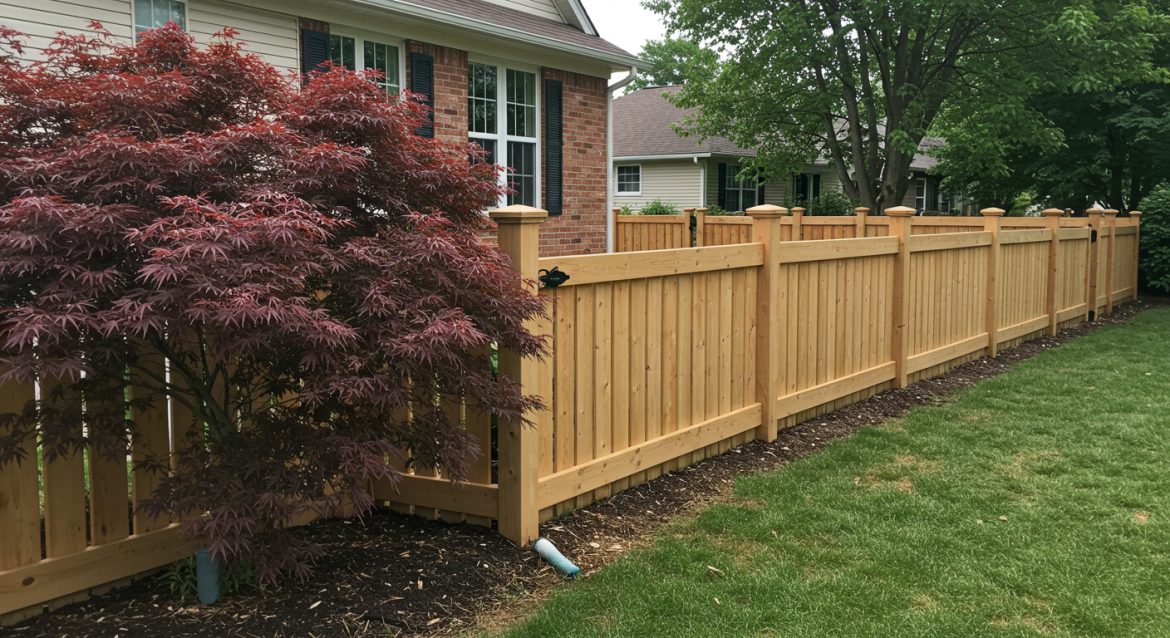Fence Regulations & Permits in Lake County: Homeowner Guide
Planning to install a new fence in Lake County, IL? Understanding fence regulations and securing the necessary fence permits in Lake County is crucial for a smooth and hassle-free project. This guide provides homeowners in Grayslake, IL, and surrounding northwest suburbs with essential information on navigating local fence ordinances and ensuring compliance.
Installing a fence in Lake County requires adherence to specific rules and, in many cases, obtaining a permit. This guide breaks down the key regulations and permit requirements to help you avoid potential fines or delays, whether you live in Grayslake, Glencoe, Wilmette, or beyond.
Understanding Fence Regulations in Lake County, IL
Fence regulations in Illinois, particularly in Lake County and its municipalities, are designed to ensure neighborhood aesthetics, safety, and property rights. The specific rules can vary significantly from town to town, so it’s essential to research the ordinances for your specific location. Here are some common aspects covered in these regulations:
- Height Restrictions: Most municipalities have limitations on fence height, typically varying based on location (front yard vs. backyard). For example, front yard fences are often restricted to lower heights (e.g., 4 feet), while backyard fences might allow for 6-foot heights.
- Material Restrictions: Some areas may restrict the types of materials allowed for fencing. Common materials include wood, vinyl, chain-link, and wrought iron, but certain materials might be prohibited or require special approval.
- Setback Requirements: Fences usually need to be set back a certain distance from property lines and public rights-of-way. This helps prevent encroachment and ensure access for utilities.
- Style Restrictions: Certain architectural styles or historic districts may have specific requirements for fence styles to maintain the area’s aesthetic character. Think of neighborhoods in Glencoe or Lake Forest that want a uniform look.
- Corner Lot Considerations: Corner lots often have unique setback requirements due to their double frontage.
Always check your local municipality’s website or building department for the most up-to-date and accurate information. A quick search for “[Your Town] fence regulations” should get you started.
Navigating Fence Permits in Lake County
Obtaining a fence permit in Lake County is a critical step before beginning any fence installation project. The permitting process helps ensure that your fence complies with local regulations and doesn’t create any safety hazards or property disputes.
Here’s a general overview of the permit process:
- Application: Obtain a permit application form from your local building department. This form will typically require information about your property, the proposed fence location, height, and materials.
- Site Plan: You’ll usually need to submit a site plan or survey showing the location of your property lines, existing structures, and the proposed fence location. This plan should be accurate and to scale.
- Drawings or Specifications: Provide detailed drawings or specifications of the fence, including height, materials, and construction methods.
- Fees: Pay the required permit fee. Fees can vary depending on the municipality and the size of the project.
- Review and Approval: The building department will review your application to ensure compliance with local regulations. This process can take several days or weeks.
- Inspection: Once the fence is installed, a building inspector may need to inspect the fence to verify that it complies with the approved permit.
Failure to obtain a permit when required can result in fines, orders to remove the fence, or other penalties. Don’t risk it!
Tips for a Smooth Fence Installation
- Research Thoroughly: Before you even start planning your fence, research the specific regulations in your municipality.
- Talk to Your Neighbors: Discuss your fence plans with your neighbors, especially if the fence will be located close to the property line. This can help prevent potential disputes.
- Hire a Professional: Consider hiring a qualified fencing contractor who is familiar with local regulations and permitting procedures. They can guide you through the process and ensure that your fence is installed correctly.
- Plan Ahead: Start the permit process well in advance of your planned installation date to allow ample time for review and approval. Especially during peak construction seasons in areas like Round Lake or Libertyville.
- Keep Records: Keep copies of all permits, plans, and inspection reports for your records.
The Importance of Professional Fence Services
While some homeowners may choose to DIY their fence installation, working with a professional fencing company offers several advantages, especially when dealing with fence regulations IL.
- Expertise: Experienced contractors have in-depth knowledge of local regulations and can ensure that your fence complies with all requirements.
- Efficiency: Professionals can handle the entire process, from obtaining permits to installing the fence, saving you time and effort.
- Quality: A reputable contractor will use high-quality materials and proper installation techniques, ensuring that your fence is durable and long-lasting.
Conclusion
Navigating fence regulations and permit requirements in Lake County can seem daunting, but with careful research and planning, you can ensure a smooth and successful fence installation project. Remember to consult your local municipality’s ordinances, obtain the necessary permits, and consider working with a qualified fencing contractor for expert assistance. For those in Grayslake, IL, and the surrounding areas, ensuring you comply with local regulations not only avoids fines but contributes to the overall beauty and harmony of our communities.
Ready to get started on your fence project? Contact Angel Fence today for expert advice and professional fence installation services. We serve Grayslake, and Northwest Suburbs from Glencoe to Lake Geneva. We can help you understand fence regulations and ensure your new fence meets all local requirements.
